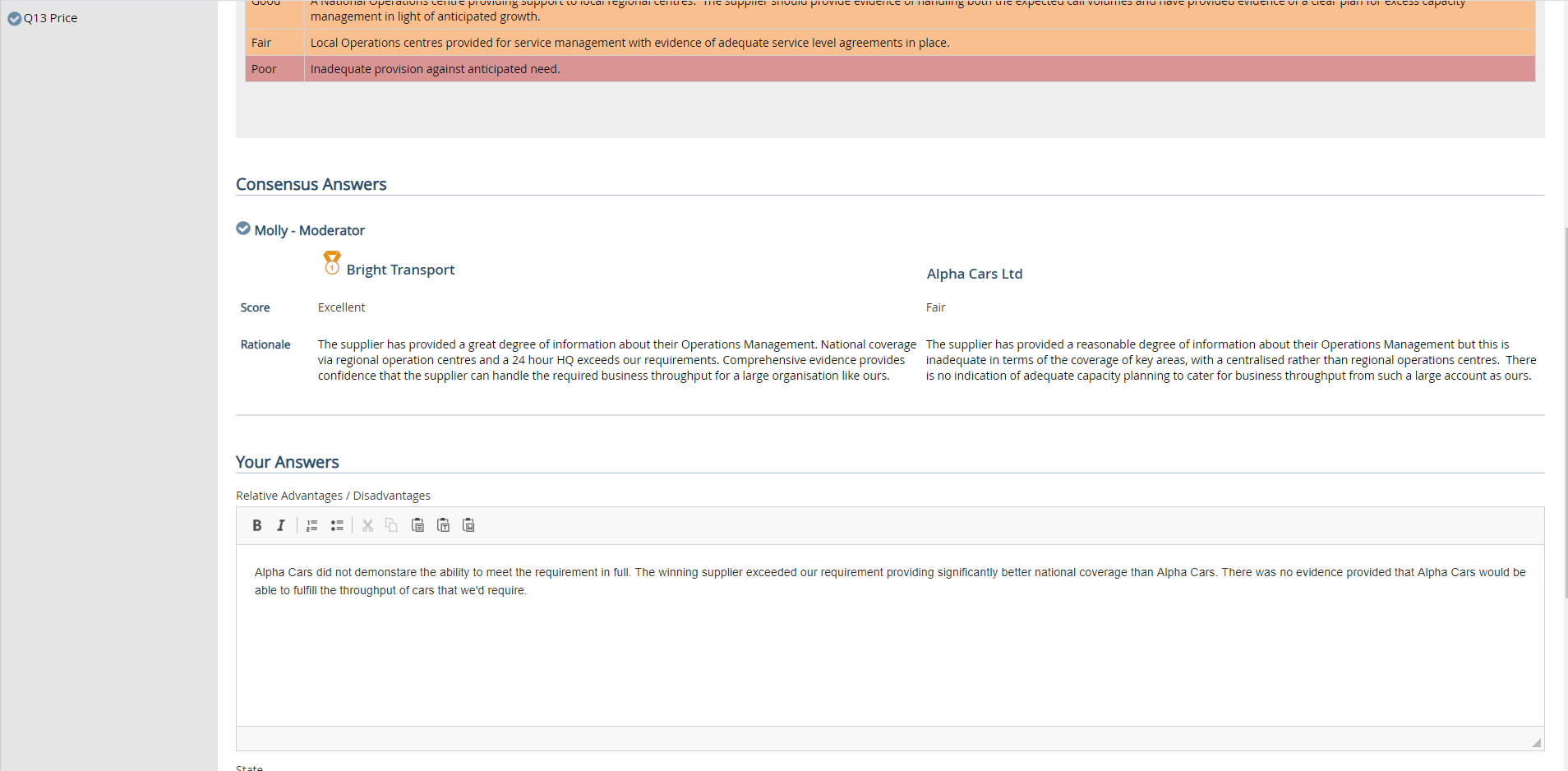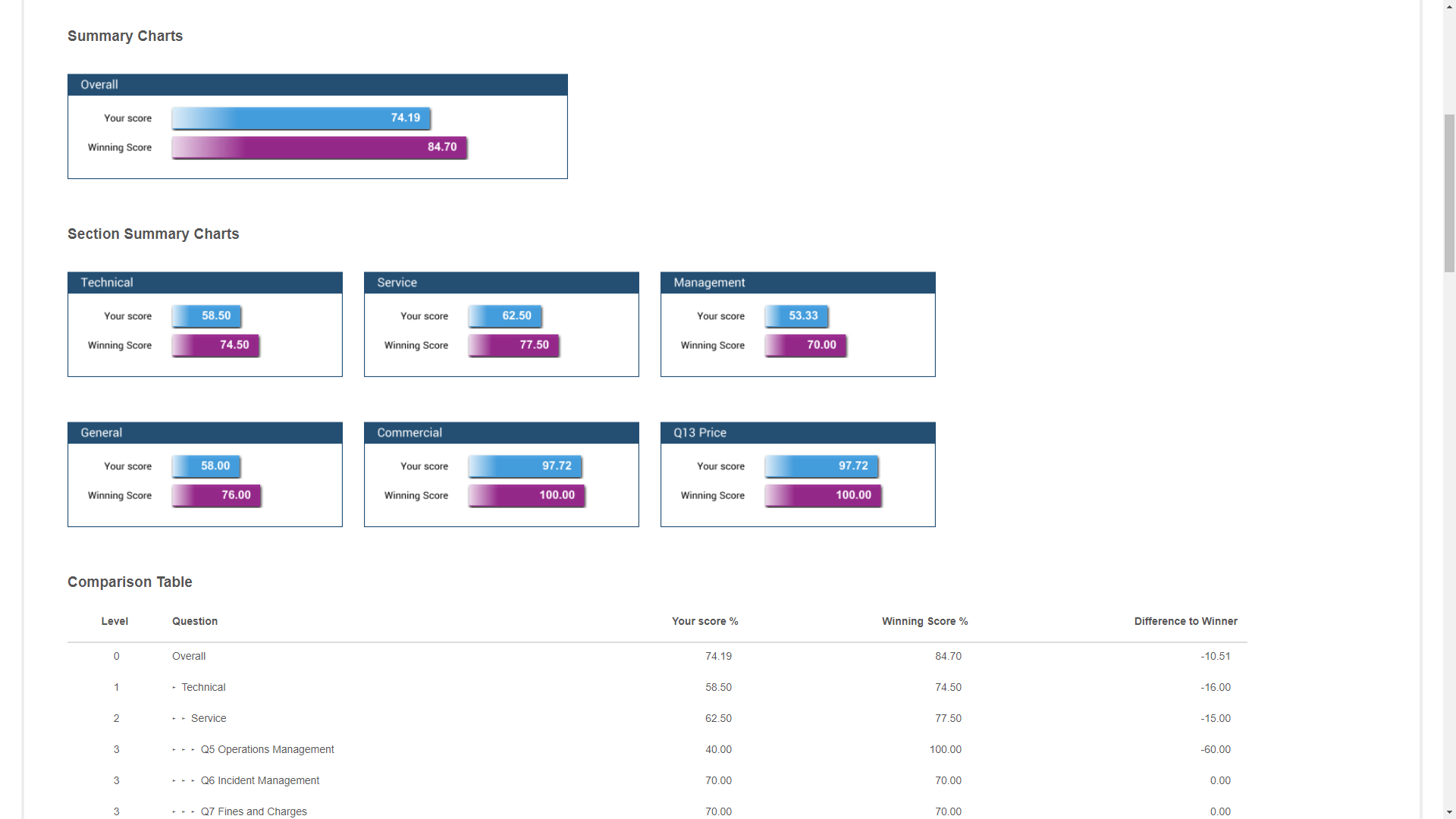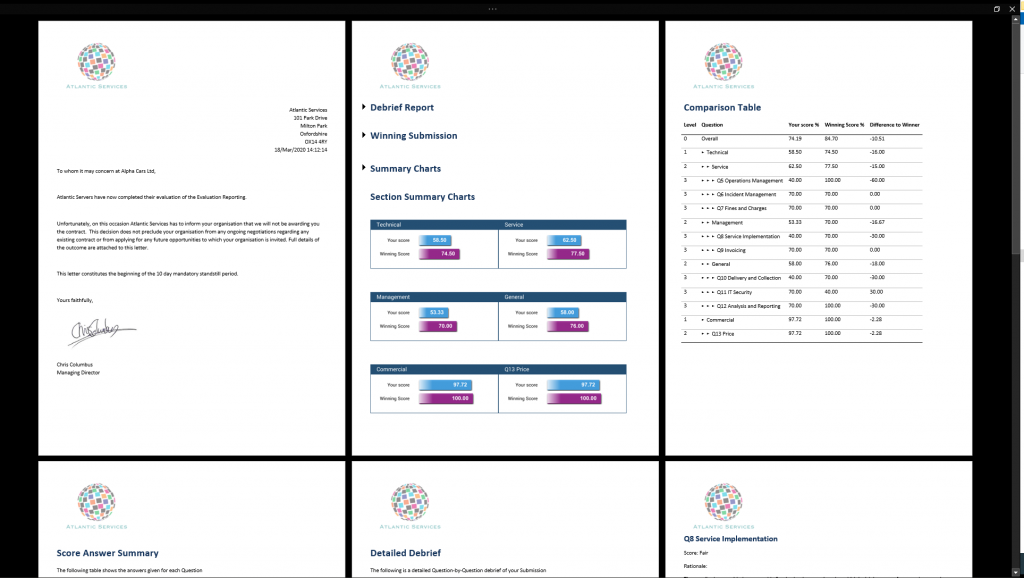Estimated reading time: 5 minutes
Awarding your contract without fear of challenge
It goes without saying that significant effort goes into the decision-making process prior to awarding a contract to a supplier. A large part of this work includes ensuring that all evaluation and moderation activity is completed fairly and in line with the rules of the competition. The complex nature of this process involves a large amount of data capture and as a result can take a considerable amount of time to complete.
The EU Public Contract Regulations (PCRs) are in place to promote the maintenance of a full audit trail, with contracting authorities under increasing pressure to document the decisions taken at every stage of the procurement process. Similar procurement and contracting regulations are in place the world over.
PCRs mandate that when a standstill notice is issued, a contracting authority must include:
- The reasons for the decision, including: the characteristics and relative advantages of the successful tender; the score (if any) obtained by the economic operator which is to receive the notice and the tenderer to be awarded the contract / become party to the framework agreement.
- The reasons (if any) why the economic operator did not meet the technical specifications.
In summary, debriefing suppliers is compulsory. The specific level of detail, however, is not.
So what does this mean? Often, the contracting authority fails to consider the provision of a comprehensive level of detail to all suppliers as a priority, despite a growing level of scrutiny. This may be largely due to the considerable effort involved in manually collating, creating and distributing debrief material.
However, with over 40% of bidder challenges upheld, it’s more important than ever to be able to evidence how the winning bidder was selected. Consequently, the requirement for easy access to relevant supporting documentation and evidence of the decision-making process has become critical. Failure to do so leaves your project open to a costly legal challenge which can result in delays and legal fees at the very least; or a court case, reputational damage, significant settlement fees and a cancelled procurement as the worst case outcome.
The most common reason for a successful challenge is lack of transparency and errors in the tender documents. With regulatory authorities able to request details of your decision-making process at any point in the procurement, you need to be able to confidently answer questions and justify every decision you make.
How can you protect yourself against the possibility of challenge?
With the evaluation process playing such a huge part in the successful delivery of your project, having the assurance that you can confidently award your contract without fear of challenge, is critical.
Here are the key ways to ensure that your projects stand up against scrutiny:
- Maintain a robust and transparent audit trail throughout your procurement, so you can easily search responses and reference material
- Ensure you can confidently access all documented evidence and provide details of questions answered alongside the rationale for each, to justify your reasons for selecting the winning bidder.
- Ensure the evaluation documentation and information is always up-to-date and available so you can give evidence of every decision made along the way.
But how do you efficiently collate sufficient detail to justify and defend your evaluation decisions?
Our AWARD® software suite and expert services are specifically designed to help you manage the collaborative and multi-dimensional nature of complex evaluation, helping you comply with policy guidelines, control and mitigate risk and protect you from any challenges.
Throughout your procurement process, AWARD® provides a structured, transparent and robust approach, addressing value for money and assuring delivery of the best possible outcome. With controlled access and the ability to collate all competition data within the platform, AWARD® builds a solid audit trail to defend decision making. In addition, large teams of evaluators can be supported within the system, each with a unique log in. Individual criteria can also be assigned to individual evaluators, guiding workflow. Their progress can be tracked throughout the evaluation allowing for efficient management of the process.
Our AWARD® evaluation module offers a unique focus and depth of functionality for this pivotal stage of your procurement, allowing you to conduct robust, transparent evaluations.
The purpose-built debriefing functionality we provide as part of AWARD® Evaluation supports the delivery of detailed feedback easily and efficiently, helping to protect your decisions from legal challenge. This functionality includes:

Figure 1 – Example of the debrief answer sheet
A debrief function that allows a user to view each question’s score and rationale, comparing each supplier to the winning supplier. This allows the user to review and capture question-specific relative advantages and/or disadvantages per question for each supplier.

Figure 2 – Example of some of the many debrief report components
The detailed information captured during the debrief exercise can then be used to produce comprehensive reports. AWARD’s flexible reporting can be used to present and export data in a way that meets the Authority’s requirements.

Figure 3 – Example of a debrief letter exported from AWARD®
Templated letter generation using mail merge technology to significantly reduce the manual effort required to collate debrief data and create letters. AWARD® can produce automated debrief letters for all suppliers using a single report.
In an increasingly demanding environment, AWARD® is here to make your job easier, your procurement outcomes better and deliver value for money. By leading you to clearer separation between the winning bid and the other bidders, you can confidently award your contract.
And with all your data in one place and a clear and transparent audit trail, debriefing unsuccessful bidders can be done at the touch of button, with the confidence that you can justify your decisions and successfully defend against any challenges.



